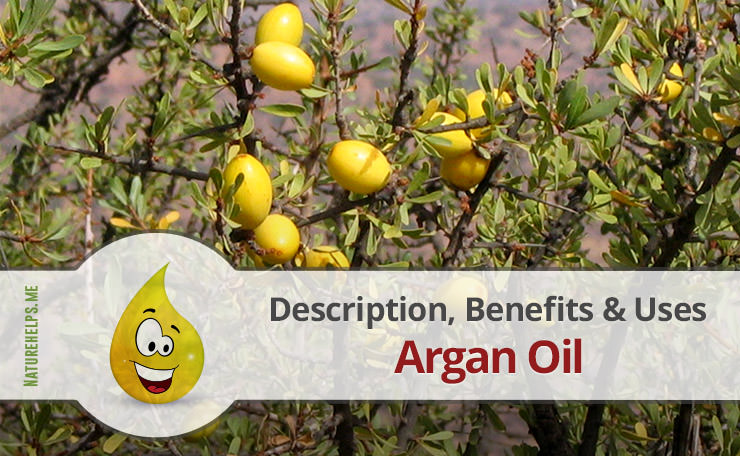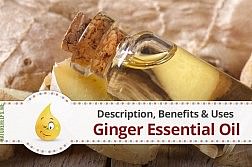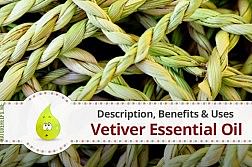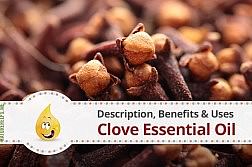The popularity of argan oil has exploded since the many amazing health benefits offered by this ‘miracle oil’ have been made public. It can be used both cosmetically and culinary to improve everything from skin appearance to heart health.
Recently acquired extraordinary popularity of argan oil. Due to its beneficial properties, it has been called “liquid gold”. Traditionally, argan oil is widely used in Morocco for treating various diseases such as dry skin, acne, wrinkles, and joint pain. Since argan oil has many health benefits from lower cholesterol finishing treatment of arthritis, it is used in the diet as well.
Argan oil is obtained from the fruit of a unique tree called Argan, it is called the “iron tree”. This tree grows only in one place on the ground in the South West of Morocco. The fruits of the Argan tree in the form similar to olives and have yellow color and bitter taste. Each fruit contains 2-3 seeds, which are shaped like almond. Argan oil is obtained by compression of the cores that are inside the solid bones.
An interesting fact is that the goats that eat the fruit of the Argan tree, often facilitate the process of production of argan oil. After their raids on the “iron tree” on earth are the product of their life, in which Moroccan women find undigested argan pits.
Why Argan Oil is so Expensive?
Argan oil is considered one of the most expensive oil in the world. The high cost of oil Argan is provided by several factors: labor-intensive process, the need for more raw material (for 1.5-2 liters of argan oil requires about 100 kg of argan fruit), endemic (grows only in Morocco) In addition, during dry season argan tree can bear fruit only 1 time in 2 years.
Why Argan Oil is so Beneficial?
One of the main reasons for the healing properties of Argan oil due to the huge presence in its structure of vitamin E. The amounts of vitamin in argan oil is 3 times higher than in olive oil. As part of argan include carotenoids (required for synthesis of vitamin A), Omega -9 (oleic acid over 40%) and omega 6 (linoleic acid 20, squalene, sterols (contribute to the prevention of atherosclerosis).
Vitamin E – a powerful antioxidant that prevents the formation of free radicals that contribute to the emergence of various diseases. Besides vitamin E, it has been actively involved in the regeneration of tissues and keeps the skin young and healthy. Vitamin E is essential for maintaining the health of the cardiovascular and reproductive systems.
Carotenoids are essential for normal functioning of the retina, have a pronounced anti-inflammatory, antioxidant and wound-healing properties. Contribute to the development of the natural beauty of the proteins collagen and keratin. Strengthens the immune system and have antioxidant properties.
Oleic acid reduces the level of cholesterol in the blood and prevents the formation of atherosclerosis, protects against breast cancer, reduces the risk of diabetes. It supports normal functioning of the endocrine system.
Linoleic acid helps avoid excess weight, improves metabolism, improves the cardiovascular system and strengthens the immune system.
Squalene – a powerful antioxidant. The substance squalene one of the derivatives of vitamin A, promotes natural synthesis of vitamin D, normalize hormones, prevents premature aging, supports the immune system.
Effects & Actions of Argan Oil
Effects of argan oil on internal organs and systems
antibacterial
antioxidant
protective
anti-inflammatory
moisturizing
nourishing
anti-aging
Argan Oil in Skin & Hair Care
Recent scientific studies have shown that argan oil has antimicrobial properties, which allows its use for the treatment of damaged and inflamed skin.
Due to the high content of essential fatty acids, argan oil helps maintain the health and beauty of skin and hair.
Pure argan oil is easily absorbed and adjust pH balance of the skin, which in turn protects against sun damage and other negative environmental factors. Argan oil reduces inflammation of the skin, which reduces the manifestation of diseases such as eczema and psoriasis.
Argan oil is extremely useful for all skin types. It nourishes and moisturizes dry, flaky skin and protects it from infections. It regulates sebum production, matting and pores on oily skin.
As shown argan oil for skin prone to acne, because it can reduce the inflammation and prevents the appearance of scars.
Widely known for anti-aging properties of oil. Argan oil stimulates cell regeneration, improves elasticity and wrinkles on the skin.
Argan oil is an antioxidant and protects the skin from harmful ultraviolet radiation.
It is very beneficial for the hair. It repairs damaged hair and restores their shine, prevents split ends. It increases hair growth, dandruff and itchy scalp.
There are two varieties of argan oil: cosmetic and culinary type. Cooking oil tastes like sesame oil and is very beneficial for health. Cosmetic oil is used for the face and body, hair and nails.
Indications in Usage of Argan Oil
- Argan oil is added to food with therapeutic and prophylactic purposes. In food argan oil is useful to treat diseases of the cardiovascular system. Due to its beneficial properties argan oil lowers cholesterol levels, balances blood pressure, stabilizes blood sugar, prevents inflammation of the heart and blood vessels.
- Due to its antioxidant properties, argan oil is an excellent means of preventing cancer and avoids premature aging. According to a recent study by American scientists Oleic acid Omega-9, which is particularly rich in argan oil is able to inhibit the growth of cancer cells in cancer of the breast, stomach and intestines.
- Argan oil boosts immune system and helps fight infections caused by viruses and fungi, relieves various inflammatory processes in the body, improves eyesight, normalizes male and female sexual function.
- It is known for its anti-diabetic properties. Argan oil helps to control blood sugar.
- Argan oil improves digestion and protects the liver.
- Regular consumption of argan oil can help prevent diseases such as coronary heart disease, varicose veins, Alzheimer’s disease, hypertension, atherosclerosis.
The recommended daily dose of argan oil is 2-3 tablespoons per day.
Usage of Argan Oil in Cosmetology
Argan oil is widely used in cosmetology to improve the face and body skin, hair and nails.
Argan Oil to Moisturize Skin. Argan oil is most commonly used to moisturize and soften the skin. High levels of vitamin E and fatty acids in argan oil makes it an ideal way to restore the natural skin moisture balance. Due to its structure, it penetrates well into the skin without irritating it and leaves no greasy layer. Argan oil can be used to moisten the whole body, including the face and neck. Just apply a few drops on the skin and rub massage movements.
Argan Oil as Hair conditioner. Argan oil can make hair soft, silky and shiny. It will also help solve the problem of split ends and tame frizzy hair.
Argan Oil in Hair Styling. Argan oil is also used as a hair styling product. It makes hair more manageable and more attractive. This oil protects the hair during blow-drying and ironing while hair is exposed to high temperature. To do this, apply a few drops of argan oil on your palm, rub into your hair and smooth over the entire length.
Argan Oil Protects against Aging. Argan oil can be used not only as a moisturizer, it is also an excellent remedy for extending the youth of the skin and reduces the depth and severity of wrinkles. Its antioxidant properties protect the skin from premature aging and restore elasticity and make the skin more taut. The best way to use argan oil to protect against premature aging is just put a few drops on face and neck and rub with massage movements.
Argan Oil to Treat Dry Skin. Can be very helpful for people who suffer from dry skin or diseases such as eczema. Vitamin E and fatty acids that contained in argan oil well restore damaged skin and provide it with nutrients that will prevent the occurrence of dryness and irritation.
Argan Oil to Prevent Acne. Acne is often the result of excessive oily skin. Argan oil regulates sebum production and has antimicrobial properties. Reduces inflammation and accelerate healing of the skin. In order to get rid of pimples, apply a gentle pat little argan oil on clean, dry skin. Prolongs the procedure 2 times per day. For the best effect it is recommended to combine argan oil with tea tree essential oil which has anti-microbial, antiseptic and wound-healing effect. Mix 10 ml of argan oil and 2-3 drops of essential oil of tea tree. Use the resulting mixture for applications and masks on a clean face.
Argan Oil to Reduce Stretch Marks. Argan oil is an ideal protection against stretch marks and sagging wrinkled skin that can occur after pregnancy. Argan oil increases the elasticity of the skin due to its high content of vitamin E. In order to prevent stretch marks, rub pure argan oil into the chest, abdomen and thighs. Repeat this procedure two times a day.
Argan Oil for Hands & Nails. Agan oil emollient properties make it ideal for the care of hands and nails. Argan oil restores damaged brittle and dry nails making them strong and healthy. It restores, moisturizes dry skin of the hands and makes it more elastic.
Caution! Please be mindful when using argan oil, if you have any nut allergies. There have been a few cases where argan seeds has caused an allergic reaction. While not technically a tree nut, it is a stone fruit and the oils come from the nut. You can always test the oil on the inside of your arm to make sure that you do not react to it.




